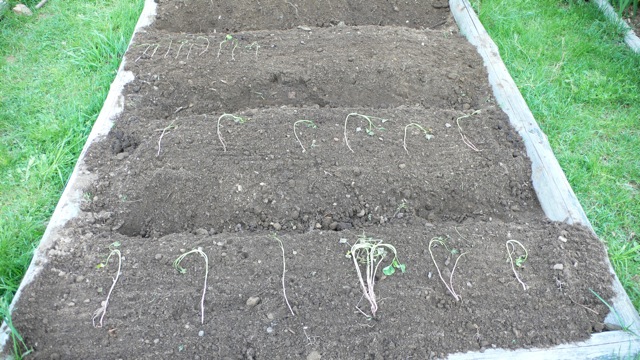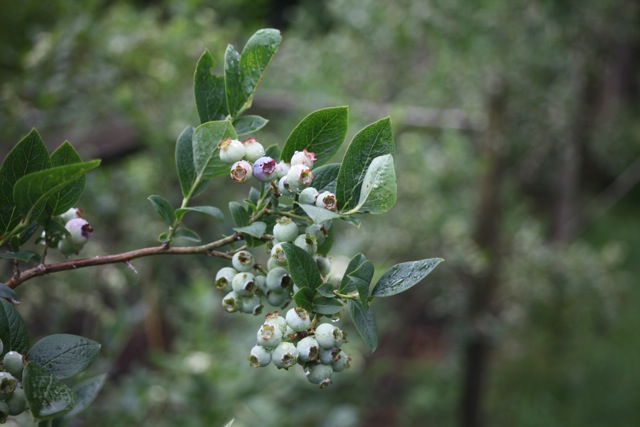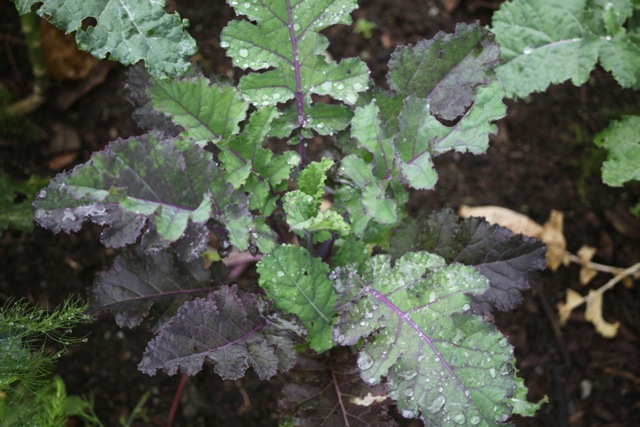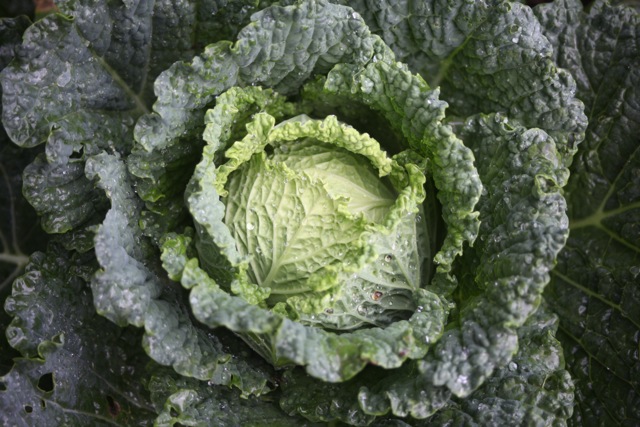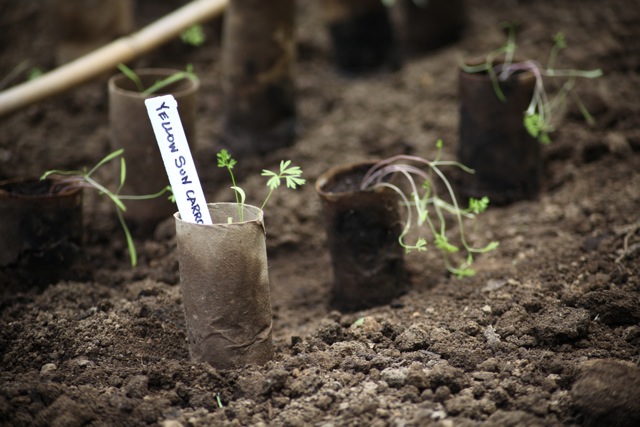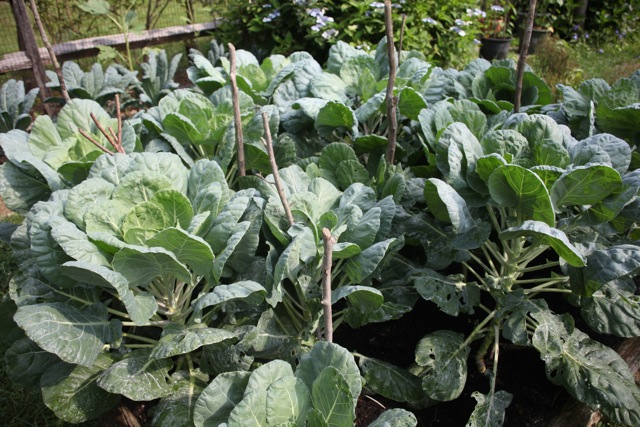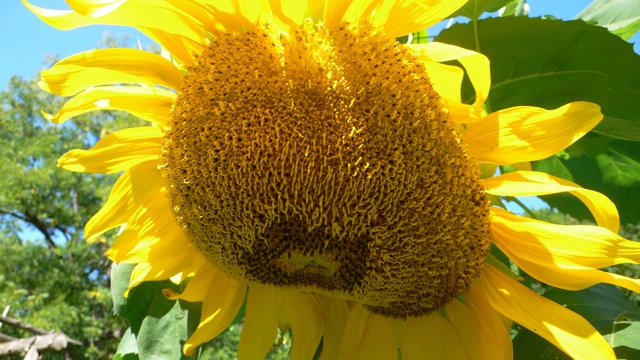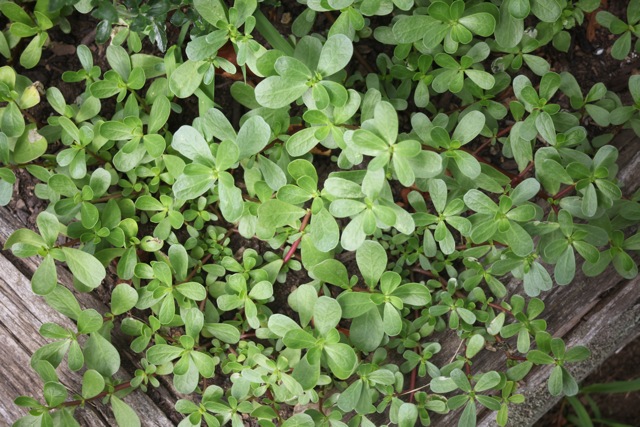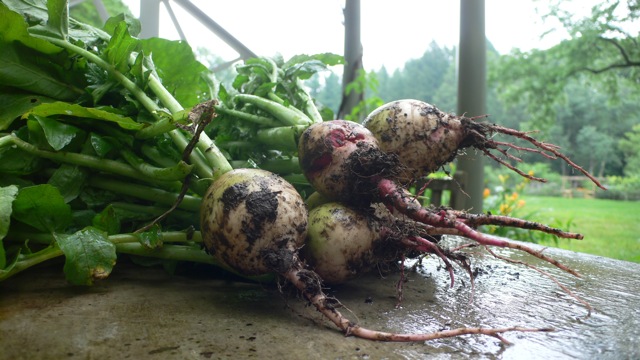A Guide To Growing Super Foods
By Pamela Page
Super foods are foods that are higher in nutrients per calorie than other foods and are blessed with scientifically proven health benefits. The list of “super foods” gets longer and more exotic every day – Peruvian maca maca fruit, Chinese hemp seeds, Tibetan gogi berries, acai and camu camu berries, amaranth and quinoa. These items can be expensive or hard to find. Meanwhile, there are many other easy to grow, easy to cook, easy to juice or to eat. Just plain raw fruits and vegetables that fully qualify as excellent super foods. Here are some of my favorites.
1) Sweet potatoes – It’s best to buy baby plants called “slips” online. There are over a 100 varieties with different tastes and colors, including several that are suitable for Northern climates. The best thing about growing your own is that when you cure them yourself, they are much sweeter than commercially grown sweet potatoes.
According to nutritionists at the Center for Science in the Public Interest (CSPI), the sweet potato is the most nutritious vegetable of all, scoring 100 points higher than the runner up. Sweet potatoes contain lutein and carotenoids, organic pigments that eliminate the excess free radicals in the body that contribute to cancer. Eating one cup of sweet potatoes a week could reduce your risk of lung, skin and prostrate cancers.
2) Blueberries – Everyone should have a blueberry plant. They’re beautiful when they flower; they live a long time; and once established, they will provide pounds and pounds of delicious, otherwise expensive berries free for the picking!
Packed with anti-oxidants and flavonoids, blueberries may lower the risk of heart disease and cancer, keep you mentally sharp as you age, and act as a cancer fighting anti-inflammatory.
3) Kale – You can direct sow kale seeds or start your kale indoors six weeks before the last frost. “Red Russian” is one of the most beautiful varieties. “Siberian” is one of the hardiest. Kale germinates quickly and requires little care. One to three plants can keep you juiced for a very long time.
A great diet aid and full of fiber, kale helps digestion and lowers cholesterol levels. Kale is packed with powerful antioxidants that protect cells from the free radicals that cause cancer and contains a whopping dose of vitamin K that plays a critical role in bone health.
4) Cabbage – Endlessly beautiful as they develop, cabbage can be either direct seeded or started indoors. Cabbage only needs to be sprayed with a biological insecticide or covered with floating row covers in the spring to protect them from cabbage loopers and other worms.
A regular diet of cabbage reduces cholesterol levels. As long as you don’t microwave it, cabbage also provides anti-inflammatory nutrients. The antioxidants in cabbage also help fight and prevent cancer. High amounts of Vitamin B in cabbage give the body energy. And finally, the high amount of beta-carotene and Vitamin C in cabbage helps keep your skin looking young and fresh.
5) Carrots – Carrots require a fine light soil and regular watering, but otherwise, they aren’t fussy. There are over 100 varieties in lovely colors.
We all know that carrots are good for sight, but carrots have a host of additional health benefits. Carrots contain beta-carotene that slows down the aging of cells, carotenoids that are linked to a lower risk of heart disease, Vitamin A that protects the skin and falcarinol that contributes to their anti-cancer properties. Juicing carrots increases the availability of carotenoids by 600 percent.
6) Brussels Sprouts – One of the most impressive long season plants in the garden, brussels sprouts should be direct seeded in warm climates or started indoors five to seven weeks before your last expected frost in cool climates.
Brussels sprouts contain more glucosinolates that combat cancer and detoxify than any other vegetable.
7) Sunflower Seeds – Plunk the seeds in a sunny part of the garden along a fence and watch them go. Sunflowers are remarkably hardy, but birds love to peck at sunflower seedlings, so it’s best to cover young plants with netting.
Sunflower seeds are one of the best sources of Vitamin E, a vitamin important in preventing heart disease and protecting the skin. A quarter of a cup of sunflower seeds daily gives you ninety percent of the recommended value of Vitamin E. Sunflower seeds also contain lots of magnesium, which is good for bone health.
8 ) Purslane – Many American gardeners consider this common wild weed the cockroach of the horticultural world. I say it’s the caviar. Sold in markets in Mexico, India and Iran, purslane has been a food for more than 2,000 years. Over a century ago, Henry Thoreau wrote, “I learned that a man may use as simple a diet as the animals, and yet retain health and strength. I have made a satisfactory dinner off a dish of purslane which I gathered and boiled.” Locate a plant growing wild in your garden, backyard or a nearby park. Cut off the leaves at the tips, and the plant will sprout again in no time. Throw away the stems since all the nutrients are in the leaves.
Purslane contains more cholesterol-lowering omega-3 fatty acids than any other leafy vegetable plant and is also one of the highest among green leafy vegetables for Vitamin A and a rich source of Vitamin C. The best things in life really are free!
9) Radish – I never met one I didn’t love – daikon, red, purple, breakfast, black or watermelon. I eat them sliced raw, grilled, juiced, sautéed, as greens and as sprouts.
If you can’t grow radishes, it might be a good idea to take up golf. Radishes are sown directly in the garden and ready to eat in less than a month. All they need is adequate moisture.
High in Vitamin C and teeming with antioxidants, radishes are another anti-cancer vegetable. In addition to this, radishes are among the most alkaline vegetables.
Why does this matter? The acidity of the modern Western diet may be responsible for many of our current diseases. Before the introduction of grains and processed foods all of which are acid or acid forming, the human diet was far more alkaline. Alkaline foods are important because they limit the acidity of the bloodstream. Excess acidity is believed to foster the inception and growth of cancer cells.
So grow a garden of super foods! What are you waiting for?
